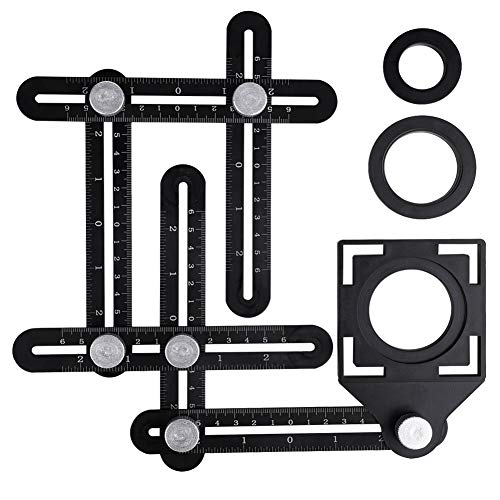You are using an out of date browser. It may not display this or other websites correctly.
You should upgrade or use an alternative browser.
You should upgrade or use an alternative browser.
Insanity
- Thread starter Floorist
- Start date

Help Support Flooring Forum:
This site may earn a commission from merchant affiliate
links, including eBay, Amazon, and others.
Today, a spokesman for the U.N., Mr. C Little, says the sky is falling.
Nick
In Remembrance
They test him for Drugs ? 
Ram Jack can fix that!Today, a spokesman for the U.N., Mr. C Little, says the sky is falling.
How long will it take?Today, a spokesman for the U.N., Mr. C Little, says the sky is falling.
"But even if we were to convince everyone to stop cutting down trees, start re-foresting the planet, switch to environmentally friendly fuels and energy production methods, and generally try to reduce greenhouse gas emissions, the Earth's temperature could continue to climb. It could take as long as 1,000 years after a complete halt of greenhouse gas emissions for environmental measures like sea level and ocean surface temperature to return to pre-industrial levels [source: NOAA]. In addition, other factors besides greenhouse gas emissions can contribute to global warming."
https://science.howstuffworks.com/environmental/green-science/reverse-global-warming.htm
So basically if they are correct about our roll in the warming theory (which is stupid), then we might just as well get used to it. The changes they mention can't happen to a degree large enough to do much of anything.... well maybe 5,000 years down the road.
By then we might be headed for an ice age.
Oh the horror! 
https://www.theguardian.com/environ...to-stop-dangerous-climate-change-warn-experts
But while temperatures have risen, global carbon dioxide emissions have stayed broadly flat for the past three years. This gives hope that the worst effects of climate change – devastating droughts, floods, heatwaves and irreversible sea level rises – may be avoided, according to a letter published in the journal Nature this week.
The authors, including former UN climate chief Christiana Figueres and Hans Joachim Schellnhuber of the Intergovernmental Panel on Climate Change, argue that the next three years will be crucial. They calculate that if emissions can be brought permanently lower by 2020 then the temperature thresholds leading to runaway irreversible climate change will not be breached.
I wonder who manufactured their calculators?
They have this warming trend figured down to the exact year.
https://www.theguardian.com/environ...to-stop-dangerous-climate-change-warn-experts
But while temperatures have risen, global carbon dioxide emissions have stayed broadly flat for the past three years. This gives hope that the worst effects of climate change – devastating droughts, floods, heatwaves and irreversible sea level rises – may be avoided, according to a letter published in the journal Nature this week.
The authors, including former UN climate chief Christiana Figueres and Hans Joachim Schellnhuber of the Intergovernmental Panel on Climate Change, argue that the next three years will be crucial. They calculate that if emissions can be brought permanently lower by 2020 then the temperature thresholds leading to runaway irreversible climate change will not be breached.
I wonder who manufactured their calculators?
They have this warming trend figured down to the exact year.

$5.99
$6.99
Art3d Smoothing Tool Kit for Applying Peel and Stick Wallpaper, Vinyl Backsplash Tile
Art3d®

$26.99
$31.99
Goldblatt Trim Puller, Removal Multi-Tool for Commercial Work, Baseboard, Molding, Siding and Flooring Removal, Remodeling
GreatStar Tools

$8.97 ($1.50 / Count)
$13.51 ($2.25 / Count)
QEP 70005Q-6D 7.5 Inch x 5.5 Inch x 1.875 Inch Grouting, Cleaning and Washing Sponge, X-Large, 6-Pack, 6 Pack, Yellow, 6 Count
Amazon.com
The global warming nuts are now wanting us to quit eating meat.
"As Allison Aubrey and Dan Charles reported today on Morning Edition, meat has more of an impact on the environment than any other food we eat. That's because livestock require so much more food, water, land, and energy than plants to raise and transport"
"As Allison Aubrey and Dan Charles reported today on Morning Edition, meat has more of an impact on the environment than any other food we eat. That's because livestock require so much more food, water, land, and energy than plants to raise and transport"
5% of the worlds CO2 emissions is from the use of concrete. https://en.wikipedia.org/wiki/Environmental_impact_of_concrete
Not only that,.
Urban heat
Both concrete and asphalt are the primary contributors to what is known as the urban heat island effect.
Using light-colored concrete has proven effective in reflecting up to 50% more light than asphalt and reducing ambient temperature.[2] A low albedo value, characteristic of black asphalt, absorbs a large percentage of solar heat and contributes to the warming of cities. By paving with light colored concrete, in addition to replacing asphalt with light-colored concrete, communities can lower their average temperature.[23]
In many U.S. cities, pavement covers about 30–40% of the surface area.[2] This directly affects the temperature of the city and contributes to the urban heat island effect. Paving with light-colored concrete would lower temperatures of paved areas and improve night-time visibility.[2] The potential of energy saving within an area is also high. With lower temperatures, the demand for air conditioning theoretically decreases, saving energy. However, research into the interaction between reflective pavements and buildings has found that, unless the nearby buildings are fitted with reflective glass, solar radiation reflected off pavements can increase building temperatures, increasing air conditioning demands.[24]
Atlanta has tried to mitigate the heat-island effect. City officials noted that when using heat-reflecting concrete, their average city temperature decreased by 6 °F (3.3 °C).[25] The Design Trust for Public Space found that by slightly raising the albedo value in New York City, beneficial effects such as energy savings could be achieved.[citation needed] It was concluded that this could be accomplished by the replacement of black asphalt with light-colored concrete.
However, in winter this may be a disadvantage as ice will form more easily and remain longer on the light colored surfaces as they will be colder due to less energy absorbed from the reduced amount of sunlight in winter.[23]
Just can't win can we.
Not only that,.
Urban heat
Both concrete and asphalt are the primary contributors to what is known as the urban heat island effect.
Using light-colored concrete has proven effective in reflecting up to 50% more light than asphalt and reducing ambient temperature.[2] A low albedo value, characteristic of black asphalt, absorbs a large percentage of solar heat and contributes to the warming of cities. By paving with light colored concrete, in addition to replacing asphalt with light-colored concrete, communities can lower their average temperature.[23]
In many U.S. cities, pavement covers about 30–40% of the surface area.[2] This directly affects the temperature of the city and contributes to the urban heat island effect. Paving with light-colored concrete would lower temperatures of paved areas and improve night-time visibility.[2] The potential of energy saving within an area is also high. With lower temperatures, the demand for air conditioning theoretically decreases, saving energy. However, research into the interaction between reflective pavements and buildings has found that, unless the nearby buildings are fitted with reflective glass, solar radiation reflected off pavements can increase building temperatures, increasing air conditioning demands.[24]
Atlanta has tried to mitigate the heat-island effect. City officials noted that when using heat-reflecting concrete, their average city temperature decreased by 6 °F (3.3 °C).[25] The Design Trust for Public Space found that by slightly raising the albedo value in New York City, beneficial effects such as energy savings could be achieved.[citation needed] It was concluded that this could be accomplished by the replacement of black asphalt with light-colored concrete.
However, in winter this may be a disadvantage as ice will form more easily and remain longer on the light colored surfaces as they will be colder due to less energy absorbed from the reduced amount of sunlight in winter.[23]
Just can't win can we.
Glyphosate was found in the following breakfast items:
( the main ingredient in Roundup weed killer)
( the main ingredient in Roundup weed killer)
- Quaker Simply Granola Oats, Honey & Almonds
- Quaker Instant Oatmeal Cinnamon & Spice
- Quaker Instant Oatmeal Apples & Cinnamon
- Quaker Real Medleys Super Grains Banana Walnut
- Quaker Overnight Oats Raisin Walnut & Honey Heaven
- Quaker Overnight Oats Unsweetened with Chia Seeds
- Quaker Oatmeal Squares Brown Sugar
- Quaker Oatmeal Squares Honey Nut
- Apple Cinnamon Cheerios
- Very Berry Cheerios
- Chocolate Cheerios
- Frosted Cheerios
- Fruity Cheerios
- Honey Nut Cheerios
- Cheerios Oat Crunch Cinnamon
- Quaker Chewy S’mores
- Quaker Chewy Peanut Butter Chocolate Chip
- Quaker Breakfast Squares Soft Baked Bars Peanut Butter
- Quaker Breakfast Flats Crispy Snack Bars Cranberry Almond
Nick
In Remembrance
Where did that info come from Floorest ?
http://www.fox13news.com/health/report-weed-killer-found-in-more-breakfast-cereals-snack-barsWhere did that info come from Floorest ?
Nick
In Remembrance
I deleted that station from my TV..
I eat some of those things.  That said, the stuff must work, I mean........ I don't have any weeds.
That said, the stuff must work, I mean........ I don't have any weeds. 
Nick
In Remembrance
That explains a lot ..I eat some of those things.That said, the stuff must work, I mean........ I don't have any weeds.

http://www.drugpolicy.org/blog/how-did-marijuana-become-illegal-first-place
The Shafer Commission, ... The commission issued a report on its findings in 1972 that called for the decriminalization of marijuana possession in the United States. The report was ignored by the White House, but is an important document against prohibition.
The Shafer Commission, ... The commission issued a report on its findings in 1972 that called for the decriminalization of marijuana possession in the United States. The report was ignored by the White House, but is an important document against prohibition.
Last edited:
Nick
In Remembrance
I'm not a big reader, but I'm thinking that this may be justifiable attempted murder. 
https://www.foxnews.com/world/antar...-he-kept-tell-him-the-endings-of-books-report
https://www.foxnews.com/world/antar...-he-kept-tell-him-the-endings-of-books-report
A Roman Catholic diocese acknowledged Wednesday that it concealed for decades a priest's admission that he sexually abused dozens of Iowa boys — a silence that may have put other children in danger.
The Rev. Jerome Coyle, now 85, was stripped of his parish assignments in the 1980s but never defrocked. And it was not until this week, after The Associated Press inquired about him, that he was publicly identified by the church as an admitted pedophile, even though the Diocese of Sioux City had been aware of his conduct for 32 years.
The diocese recently helped Coyle move into a retirement home in Fort Dodge, Iowa, without informing administrators at the Catholic school across the street.
The Rev. Jerome Coyle, now 85, was stripped of his parish assignments in the 1980s but never defrocked. And it was not until this week, after The Associated Press inquired about him, that he was publicly identified by the church as an admitted pedophile, even though the Diocese of Sioux City had been aware of his conduct for 32 years.
The diocese recently helped Coyle move into a retirement home in Fort Dodge, Iowa, without informing administrators at the Catholic school across the street.










